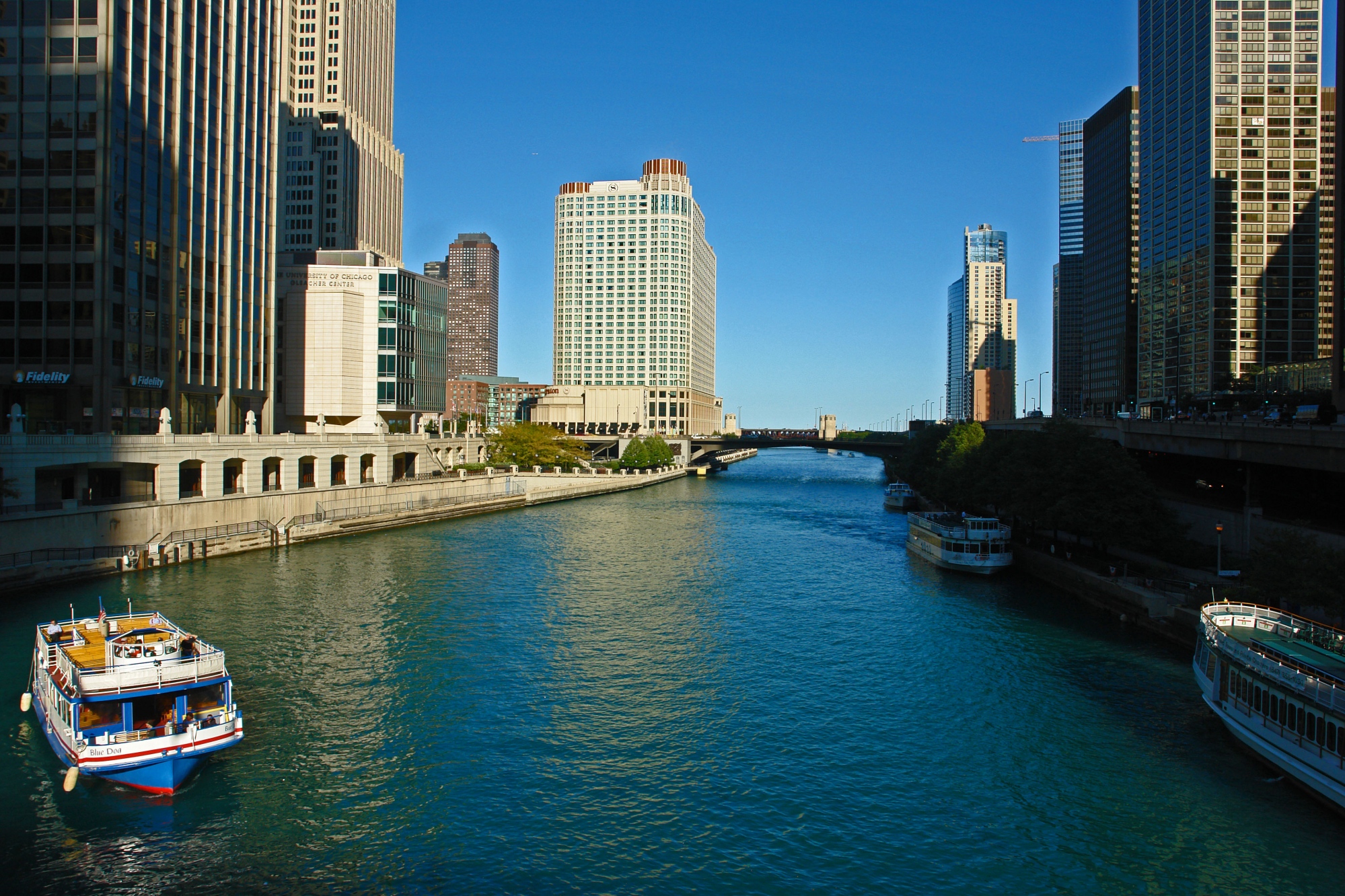

The Distinguished Environmental Professional Award, named in honor of founder E. Ted Erickson, was established by the IWWSG in 2000 to recognize an individual who has made a significant contribution(s) in the environmental area, especially at the local and regional levels. The award is granted based on recognition of the recipient‘s community service advancing IWWSG‘s goals, leadership / service to environmental professional organizations, including the IWWSG, and contributions to the field of environmental laws / compliance / management / education.
| Apr 2025 | Nancy Tuchman, Ph.D., Loyola University Chicago |
| Mar 2024 | John J. Kim, Illinois EPA |
| Mar 2023 | Edith Mijares Ardiente, Navistar International Corporation |
| Mar 2022 | Debra Jacobson, Illinois Sustainable Technology Center |
| Mar 2021 | Jeffrey Chou, Mars Wrigley |
| Mar 2020 | Thomas E. Kunetz, MWRD |
| Mar 2020 | John E. Polich, Gabriel Environmental Services; Past Chair of IWWSG |
| Mar 2019 | Deborah Stone, Cook County Department of Environment and Sustainability |
| Mar 2017 | Mark Bouman, Ph.D., The Field Museum / Chicago State University |
| Nov 2017 | Tom Granato, Ph.D., MWRD |
| Mar 2016 | Bharat Mathur, USEPA & IEPA |
| Mar 2016 | Jean B. "Susie" Schreiber, Chair, Waukegan Harbor Citizens Advisory Group |
| Mar 2015 | Bill Compton, Caterpillar Inc. |
| Mar 2015 | Marcia Willhite, Illinois EPA |
| Mar 2014 | G. Tanner Girard, Ph. D., Illinois Pollution Control Board |
| Mar 2013 | Lee Botts, Great Lakes Environmentalist |
| Mar 2012 | Robert (Bob) S. Elvert, ExxonMobil Corporation |
| May 2011 | Howard Chinn, Illinois Attorney General's Office |
| May 2010 | Suzanne Malec-McKenna, Chicago Department of Environment |
| May 2009 | Alan Jirik, Corn Products International; Past Chair of IWWSG |
| May 2008 | Toby Frevert, Illinois EPA |
| May 2007 | Cecil Lue-Hing, D.SC., MWRD |
| May 2006 | Fred G. Krikau, Acme Steel Company / Interlake |
| May 2003 | Ron Flemal, lllinois Pollution Control Board |
| May 2002 | James B. Park, Illinois EPA |
| May 2001 | Richard Lanyon, MWRD |
| May 2000 | James T. Harrington, Environmental Attorney; Past Chair of IWWSG |
| May 2000 | Thomas McSwiggin, Illinois EPA |
2025: Nancy Tuchman, Ph.D., Loyola University Chicago
Professor Nancy Tuchman, PhD, is the Dean of the School of Environmental Sustainability (SES) at Loyola University Chicago. She is an American environmental scientist, educator and activist, specializing in human impacts on aquatic ecosystem function, with a focus on coastal Great Lake ecosystems. In 2013 she founded the Institute of Environmental Sustainability at Loyola, which, in late 2020, became the School of Environmental Sustainability. SES became a driver of environmental change & progress in the Chicago area, raising public awareness about issues of global climate change & education. Tuchman's leadership in environmental sustainability has put Loyola in the top 5 percent of greenest colleges in the nation.
During her thirty years dedicated to educating students in environmental sciences at Loyola, she set the vision for SES to raise public awareness of the unsustainable consumption of Earth's natural resources & production of pollution waste, with the goal of transforming behavior, developing policy, and inspiring & preparing the next generation of science-based environmental leaders. Under Tuchman's direction, SES has developed eight interdisciplinary undergraduate programs, launched a master's degree program in environmental science and sustainability, doubled the full-time faculty, and expanded student enrollment in these programs to over 500.
Throughout her 35-year career at Loyola, Tuchman has mentored or co-mentored over 100 undergraduates & graduate students in individual research projects, focusing on human impacts on aquatic ecosystem structure and function. Her work has spanned from investigating the effects of greenhouse gases on stream ecosystem food webs to exploring the impacts of invasive plant and animal species on Great Lakes coastal wetland ecosystems. Over her career, she has been awarded over $4.5 million in federal grants and authored or co-authored over 50 manuscripts & book chapters. In 2023 she was selected as a Society for Freshwater Sciences Fellow for her lifetime contributions to lake, stream & wetland research and her accomplishments in environmental sustainability in higher education.
Tuchman earned her BS and MS from Central Michigan University and her PhD from the University of Louisville.
2024: John J. Kim, Illinois EPA
John J. Kim was appointed Director of the Illinois Environmental Protection Agency on January 22, 2019. He served in many senior roles during his distinguished 30 years at the Agency under five Governors of both parties.
Prior to being appointed Director, he most recently served as Chief Legal Counsel. He also previously served as Director, Interim Director, Ethics Officer, Deputy General Counsel, Assistant Counsel / Special Assistant Attorney General, and Project Manager for an IEPA-China pollution prevention project.
In 2008 and 2009, he left the Illinois EPA for just over a year to serve as Acting General Counsel of the Illinois Department of Agriculture. Before joining the Illinois EPA, Director Kim was an Assistant Attorney General of Illinois and was the General Counsel to the Midwest Environmental Enforcement Association.
Director Kim received his Juris Doctor from Southern Illinois University Carbondale and his Bachelor of Science in industrial engineering from the University of Illinois at Urbana-Champaign.
2023: Edith Mijares Ardiente, Navistar International Corporation
Edith Mijares Ardiente, MS, PE, QEP, is a retired Vice President, Environmental and Energy Affairs at Navistar International Corporation, one of the world’s largest commercial and military truck, school bus and engine manufacturers. She was hired as Manager of Environmental Affairs in 1987, was promoted to Director in 1991 and was elected by the company’s Board to the Vice President position in May 2000, where she served in this capacity with increasing responsibilities until her retirement in 2012.
Edith was the top environmental officer of the company and was responsible for creating the environmental department, establishing corporate environmental and energy policies and providing technical and regulatory assistance to all Navistar operations worldwide. During her tenure at Navistar, the company received over 125 awards for environmental and energy management excellence.
She was manager of environmental protection for Borg-Warner Corporation (1986-1987); was section chief of the hazardous waste permitting program and the air enforcement program at the United States Environmental Protection Agency, Region 5 (1979-1986); was senior chemical engineer at Sargent and Lundy Engineers (1973-1979); and was technical secretary at Commercial Testing and Engineering (1970-1973). Prior to coming to the United States in 1970, she was an engineering instructor at the University of San Agustin in the Philippines.
Edith received her B.S. in Chemical Engineering, valedictorian, magna cum laude, from the University of San Agustin in the Philippines in 1966. She was a full university academic scholar and a Philippine National Science Development Board scholar. She received her M.S. in Environmental Engineering (MSEE) from Northwestern University in Evanston, Illinois in 1982. She is a registered professional engineer (PE) in Illinois and a qualified environmental professional (QEP).
In 2005, Edith served as President of the International Air and Waste Management Association (AWMA), the first Asian and the second woman to hold this position at the 100-year old association, which operates in over 65 countries and has over 4,000 members. AWMA elected her Fellow in 1997, conferring on her the Gruber Association Leadership Award in 2013 and an Honorary Membership Award in 2016.
She was the first woman president of the Philippine Engineers and Scientists Organization (1986-1987) and was founding president of the University of San Agustin Alumni Association Midwest Chapter (1984). She served as Kapitan (President) of the Samahan Sa Baryo in 2000. From 1994 to 2004, she served as a member of the Board of Overseers of the Illinois Institute of Technology’s Stuart School of Business and was Chair of Stuart’s Masters in Environmental Management Program. In 1993, she served as TOKTEN (Transfer of Knowledge Through Expatriate Nationals) consultant to the Philippines under the United Nations Development Program. She has lectured, written and presented papers on environmental management in several countries, including the United States, Canada, Mexico, Philippines, South Korea, Japan, China and Brazil.
In 2006, she received the prestigious PAMANA NG PILIPINO professional excellence award from President Gloria Macapagal Arroyo of the Philippines. Some of her other awards include: Filipino Women's Network as one of the 100 Most Influential Filipino Women in the U.S. (2009), Asian American Hall of Fame (2006), Philippine Chamber of Commerce Business Executive of the Year (2005), University of San Agustinâ one of 100 Outstanding Augustinians of the Century (2004), Colegio de San Jose’s Outstanding Alumna in Science and Technology during the school’s 150th founding anniversary (2022) and the first Filipino American Hall of Fame Awardee in Engineering (1994). She was also appointed by the late Francis Cardinal George to serve in the Archdiocesan Pastoral Council (2007-2009) of the Archdiocese of Chicago.
2022: Debra Jacobson, Illinois Sustainable Technology Center (ISTC)
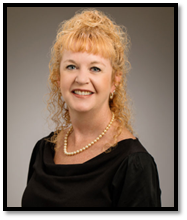
Ms. Debra Jacobson is an environmental and sustainability professional with over 30 years of multimedia experience in industry, government, and academia. She has worked with manufacturing businesses in many industries, particularly commercial printing, packaging, and food manufacturing, to provide regulatory compliance guidance and hands-on assistance to help companies identify opportunities and complete projects that move them forward in their sustainability journey. In addition, Ms. Jacobson has worked extensively with local, regional, state, and federal agencies to address community-wide environmental impacts and pollution prevention opportunities within government facilities.
She has served on several regional and national advisory committees on environmental matters, most notably the U.S. EPA Environmental Justice Advisory Council during Governor Christine Todd-Whitman’s tenure as Administrator. From 2008 to 2010, on behalf of U.S. EPA, she consulted with government and industry associations in West Bengal, India to assist them with establishing an environmental compliance assistance center aimed at supporting business in the region to understand and comply with environmental protection laws, as well as identify and implement strategies to reduce pollution and waste. This work was supported by the World Bank and USAID.
Debra has dedicated a significant portion of her career to Great Lakes environmental issues, beginning with the Great Printer’s Project in 1995. She coordinated the drafting of the 2008 EPA Mercury in Products Phase Down strategy and the 2010 Mercury in Emissions strategy on behalf of the Great Lakes Regional Collaboration. From 1999 to 2008, she led the Great Lakes Pollution Prevention Roundtable and in 2018 assumed a leading role in directing PRI’s work of the Illinois Coastal Management Program at the Illinois Department of Natural Resources.
Ms. Jacobson began her career working in the commercial printing and packaging sector, where she oversaw environmental and safety matters. In 1995, she joined what is now the Illinois Sustainable Technology Center (ISTC), a unit of the Prairie Research Institute (PRI) at the University of Illinois (formerly a division of the Illinois Department of Natural Resources Resources), and now leads their technical assistance program. In 2018, she received a dual appointment with the Institute's Illinois State Water Survey. She served as a Fellow of Leadership and Strategic Initiatives at PRI from 2017 to 2020.
Debra holds an MBA certificate and a BA in Environmental Science with minors in Chemistry and Sociology. She is also a Certified Sustainability Professional, an ISO-14000 Lead Auditor, and holds a certificate in leadership management. From 2009 to 2019, she served as a certification auditor for the Sustainable Green Printing Partnership, a community of printing and packaging manufacturers, global brands suppliers, and supporting organizations working together to drive sustainability.
Ms. Jacobson is active in several professional associations, including the Industrial Water, Waste & Sewage Group, the Illinois Association of Environmental Professionals, the Illinois Recycling Association, the National Pollution Prevention Roundtable, and the Air & Waste Management Association. She serves on the board of directors of the Air & Waste Management Association – Lake Michigan States Section (AWMA-LMSS) and received their 2009 Perry Fisher Award. She also served on two program teams awarded the federal government’s Golden Hammer Award (1999 – compliance assistance and 2000 – pollution prevention).
2021: Jeffrey Chou, Mars Wrigley
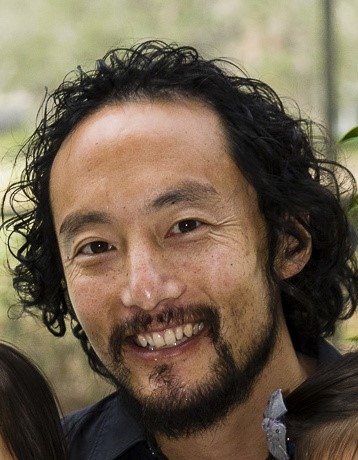
Mr. Chou is an environmental and sustainability professional with 20 years of multimedia experience in industry and consulting. He has demonstrated strong aptitude in interpretation and implementation of federal/local regulations for several industries in various states, with an emphasis on food, chemical, and oil/gas industries. He has extensive experience with driving sustainability improvement projects, leading internal audits, and deploying environmental management information systems. He is recognized as a leader in sustainability performance, including health and well-being with community engagement, and for understanding the need to reduce environmental impacts through industry innovation, leading to a healthier lifestyle and energized staff. He is dedicated to promoting a sustainable culture both at work and at home, by continually working to improve and engage the lives of those around you.
Jeff currently serves as Environmental Compliance & Sustainability Leader at Mars Wrigley in Chicago, where he leads implementation, training, and continuous improvement of Mars’ Environmental Policies/Standards, and supervises the environmental support staff and WWTP. He drives site sustainability performance (reduction in energy/water intensities) and associate engagement through Kaizen events and volunteer opportunities (i.e., Habitat Restoration). Jeff manages the annual environmental budget and capital projects to improve environmental and sustainability performance (i.e., Underground Storage Tanks closure, WWTP equipment upgrades, Waste Heat Recovery and Insulation), and promotes Mars’ Sustainable in a Generation (SiG) Plan as an invited speaker at local university workshops and environmental regulatory group events. He also serves as Chicago’s Health and Wellbeing Champion to support associates in all facets of their individual wellbeing journeys and was voted 2017 Trendsetter Champion by Mars’ Global Health & Wellbeing Team and fellow Champions throughout Mars Incorporated.
Jeff’s previous work experience includes being a Regional Environmental Engineer (Solvay USA), a Senior Project Manager (URS Corporation (now AECOM)), an Environmental Engineer (CH2M HILL), an Air Quality Engineer (AECOM), an Environmental Process Engineer (Cytec Industries (now Solvay)), an Assistant to the Technical Director (Smurfit-Stone Container Summer), and a Research Assistant (Argonne National Laboratory). He is an active member of the Industrial Waste, Water, and Sewage Group, Air and Waste Management Association, and Alpha Tau Omega Fraternity (Gamma Zeta Chapter). Jeff earned a B.S. in Chemical Engineering at the University of Illinois at Urbana-Champaign.
2020: Thomas E. Kunetz, MWRD
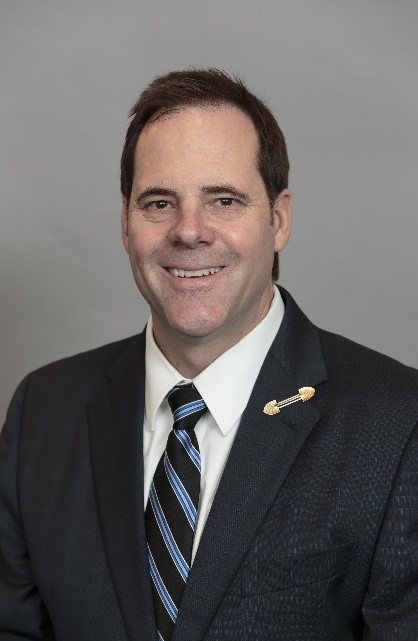
Mr. Kunetz has over 35 years’ experience in civil and environmental engineering, focusing on the design of wastewater treatment plants and pumping stations; resource recovery, energy management, project planning; project management, budgeting, regulations and permitting; research; and industrial waste pretreatment. From 1992 – 2020, he held numerous positions at the Metropolitan Water Reclamation District of Chicago, culminating in the Assistant Director of Monitoring and Research – Capital Planning and Research position. Prior experience included Project Engineer at BCM Engineers and W.E. Sacra & Associates Consulting Engineers in Pennsylvania, and Assistant Treatment Plant Operator at Bellefonte Sewage Treatment Plant, also in Pennsylvania.
Tom earned his MS in Water Resources Engineering from Villanova University and BS in Environmental Engineering from Penn State University, and completed further education at the Water and Wastewater Leadership Center (NACWA / WEF) and the Chicago Intergovernmental Executive Development Program.
Mr. Kunetz has designed, managed and/or supervised many wastewater treatment facilities, including Master Planning for the Stickney (1,200 MGD), Calumet (354 MGD), North Side (333 MGD), and Hanover Park (12 MGD) Water Reclamation Plants. Tom is a Professional Engineer (Illinois), was President of the Water Environment Federation (2018-2019), on the WEF Board of Trustees (2013-2020), on the Water Research Foundation Board of Directors (2020-2023), is a WEF Fellow, on the Steering Committee - WRF LIFT Program, and was recipient of the Charles Walter Nichols Award for Environmental Excellence (APWA National, 2012). He also served as Chair, Municipal Wastewater Treatment Symposium, WEF (2010-2013), was on the Stockholm Junior Water Prize Organizing Committee (2011), was Chapter Technical Adviser for Engineers for a Sustainable World at Northwestern University and was featured in the documentary film Brave Blue World, 2020.
2020: John E. Polich, Gabriel Environmental Services; Past Chair of IWWSG
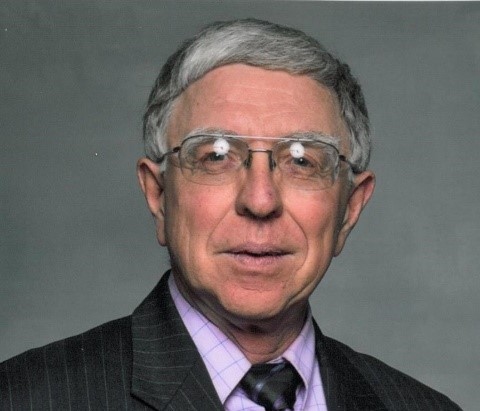
Mr. Polich has over 50 years of experience, including more than 45 as President of Gabriel Environmental Services, where he directs one of the largest environmental sampling groups in the Midwest. John formerly worked as an environmental engineer at Citgo, Borg Warner, Erickson Chemical, and the MWRD, where he helped to set up many of the District’s sampling programs. Throughout his career in the environmental arena, Mr. Polich has utilized his expertise and experience by participation in numerous conferences, writing articles, and speaking at technical / environmental meetings & seminars.
John is particularly knowledgeable of regulations involved with MWRD and ASTM standards, Clean Water Act, RCRA, and CERCLA. His strengths include MWRD, USEPA/IEPA UST & Hazardous Waste Cleanup regulations, MWRD & USEPA Pretreatment regulations, effluent control & treatment, soil remediation, RCRA/Hazardous Waste storage & disposal, and pollutant generation. He has prepared and/or reviewed thousands of Phase I and Phase II Environmental Site Assessments, including for vacant land, industrial sites, large & small residential sites, and a myriad of commercial projects. Specific projects include: warehousing, electroplating facilities, industrial/commercial loft space, laundries and dry cleaners, auto dealerships, farmland, varying-sized apartment complexes, auto repair shops, office buildings, strip malls, etc.
Mr. Polich qualifies as an Environmental Professional (EP) under the EPA’s All Appropriate Inquiry (AAI) regulations, and has conducted and managed hundreds of Remediation and UST removal projects. He has extensive project management experience in the cleanup of hazardous materials under the Illinois EPA’s Site Remediation Program (SRP) and Leaking Underground Storage Tank (LUST) Program, and has served as an expert witness on a number of environmental legal matters. John earned a B.S. in Civil Engineering at the University of Wisconsin, has completed MBA Program (Non-Degree) studies at Northwestern University, is a Registered Professional Engineer and Past Chairman of IWWSG.
2019: Deborah Stone, Cook County Department of Environment and Sustainability
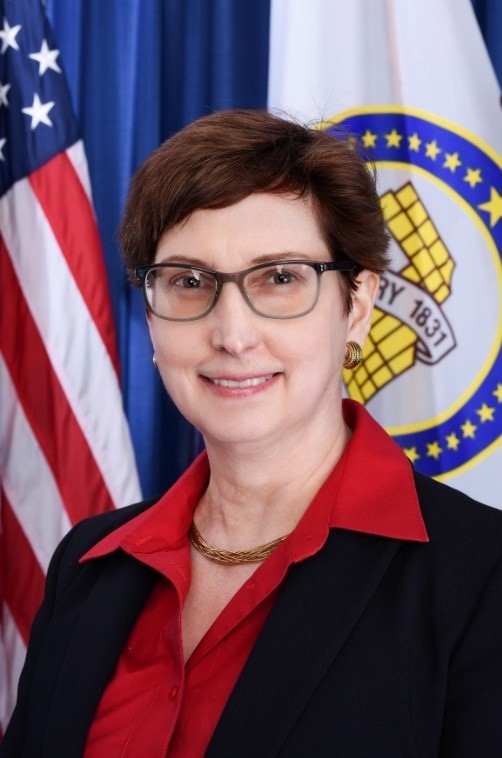
Deborah was appointed as Cook County’s first Sustainability Officer in 2011 and is Director of the Cook County Department of Environment and Sustainability (DES), which regulates air emissions, demolitions, asbestos removal, open burns and solid waste facilities, monitors air quality as part of the U.S. EPA air quality monitoring network, and works with local communities to clean up and redevelop brownfields. Projects include an award-winning program fostering reuse of building demolition debris, and helping create the County’s solid waste facility and liquid hazardous waste regulatory programs. Brownfields work in the West suburbs by DES resulted in least 200 jobs, and DES is now beginning brownfield assessments in the South Suburbs, receiving the highest dollar amount of U.S. EPA brownfield grants in the nation in 2018. DES makes county operations and communities more sustainable and resilient.
As Deputy Director of the Illinois Department of Natural Resources, she oversaw the State’s first regional water supply plan for Northeast Illinois and for the Mahomet Aquifer region, and spearheaded Conservation Congress, a working partnership of hundreds of recreation and natural resources constituents that advised the Department. She oversaw the Office of Water Resources, including regulatory permit programs and capital projects, especially dam removal projects undertaken in partnership with the U.S. Army Corps of Engineers; the office of Capital Planning and Grants; and the Office of Realty and Environmental Planning. At IDNR, she simultaneously held the position of Director of the Illinois Nature Preserves Commission, working to help public and private landowners across the state apply the strongest level of legal protection to our rare remaining remnants of high quality habitat.
She currently sits on the Illinois Nature Preserves Commission, a gubernatorial appointment. She teaches Urban and Environmental Economics in the undergraduate Public Policy Department of DePaul University, and originated a course at the University of Illinois at Chicago in the Masters of Urban Planning Program called Recycling Cities, focused on the environmental and economic impacts of the flow of materials through the built environment.
She has an M.A. in Public Policy from the University of Chicago, and a BA with double major in Sociology and Philosophy from Beloit College. She is a Fellow of Leadership Greater Chicago, and was the recipient of the Illinois Environmental Council’s Environmental Leadership Award in 2017.
2017: Mark Bouman, Ph.D., The Field Museum / Chicago State University
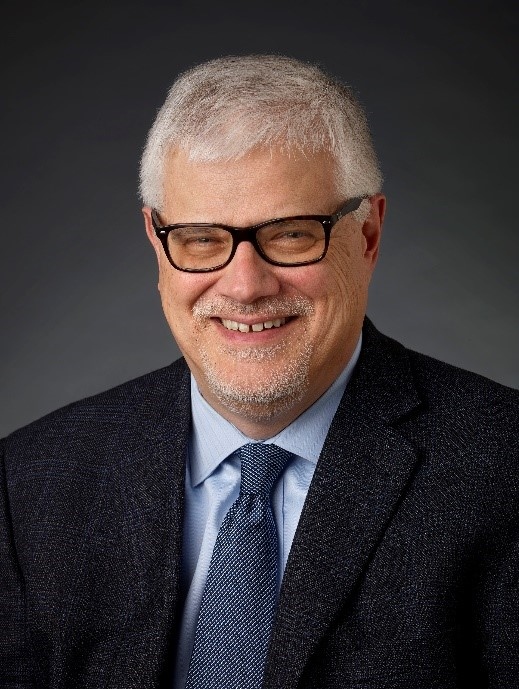
Mark J. Bouman is the Chicago Region Program Director in the Keller Science Action Center of the Division of Science and Education at The Field Museum, where he oversees the Museum’s interdisciplinary conservation and cultural heritage work in the Chicago region. The Science Action Center’s work takes a number of forms: it includes conservation, ecological restoration, environmental leadership development and stewardship, creative placemaking, climate change adaptation, green infrastructure planning, and cultural heritage planning and development. Mark is also the Past President of the Calumet Heritage Partnership (CHP). The Field Museum is a key partner in CHP, which is leading the effort to create a Calumet National Heritage Area.
The path to create a Calumet National Heritage Area dates to 1998, when the National Park Service first conducted a resource study for a Calumet Ecological Park. The Park Service suggested that a Heritage Area would be an excellent way to capture the goals of connecting the Pullman community (now a National Monument) with the Indiana Dunes National Lakeshore, and to celebrate and coordinate the region’s incredible biological and cultural diversity amidst the core of the nation’s industrial heartland. A key milestone in the process was achieved in December, 2016, with the publication of a draft feasibility study that describes the region’s national significance, the resources that support that story, and how a Heritage Area can be functional and sustainable. Mark served as the study’s principal author and key point person for the region-wide organizing that went into preparing the study. A link to the study can be found at calumetheritage.org.
Prior to coming to the Museum, Mark was Professor and Chairperson of the Department of Geography at Chicago State University. While there he led the development of the University’s Neighborhood Assistance Center, the Calumet Environmental Resource Center, and the CSU GIS Laboratory and he was a co-facilitator of the establishment of the Lake Calumet Ecosystem Partnership. He was the Project Director on a map of the Calumet Region for Chicago Wilderness that has been an important touchstone for current planning work in that landscape. Mark has an undergraduate degree in Geography from Valparaiso University and M.A. and Ph.D. degrees in Geography from the University of Minnesota.
2017: Tom Granato, Ph.D., MWRD
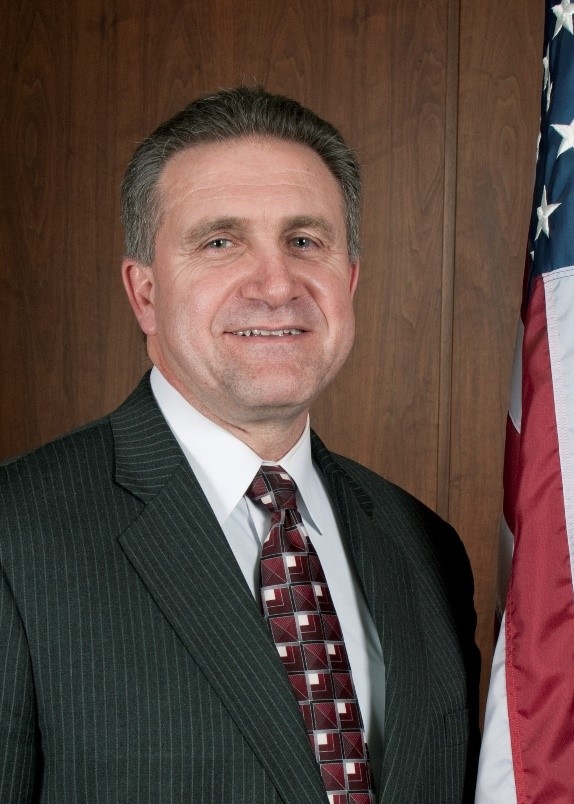
Tom Granato, a native of Chicago, was the director of the Monitoring and Research Department of the Metropolitan Water Reclamation District of Greater Chicago, where he was employed for 29 years. The M&R Department that he led is comprised of 308 employees. The Department conducts environmental monitoring to assess regulatory compliance and impacts of District operations, applies research to provide technical support for operations and administers the District’s Industrial Pretreatment and User Charge programs. The Department also leads long term strategic capital planning.
Dr. Granato holds a Bachelor of Science degree in Agricultural Science and a Master of Science degree in Soil Chemistry from the University of Illinois at Urbana-Champaign. He earned his Ph.D. in Environmental Soil Science at North Carolina State University. Dr. Granato is a certified environmental scientist by the American Academy of Environmental Engineers and Scientists.
Dr. Granato served on the national peer review panel for the development of the USEPA’s 40 CFR Part 503 biosolids regulation, he was chair of the Illinois Water Environment Association’s Biosolids Committee, he served on the Water Environment Research Foundation’s Research Council for six years, he served on the editorial boards of several scientific journals including Water Environment Research, and he is currently serving on the National Biosolids Partnership Blue Ribbon Panel and Appeals Committee. Dr. Granato has authored or coauthored two book chapters and more than 100 peer reviewed articles and technical reports.
2016: Bharat Mathur, USEPA & IEPA
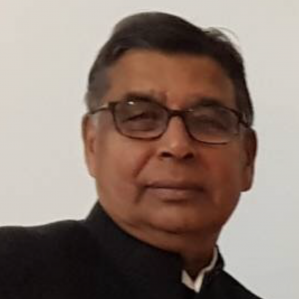
Bharat Mathur has had a distinguished career at both the Illinois EPA (1971-2000) and USEPA (2000-2015). During his IEPA tenures as Chief, Bureau of Air, Deputy Chief, Bureau of Land, and various supervisory positions in the Bureau of Water, he developed legislation & regulations to carry out statewide programs and implemented the CAA Title 5 permit program. In addition, he negotiated with industry, NGOs and environmental groups with diverse interests to assure passage of legislation and adoption of federally approvable regulations, directed the Illinois Site Cleanup, Underground Injection and Storage Tank Programs, and administered the NPDES permit program. As Acting Regional Administrator, Deputy Regional Administrator, and Director, Air & Radiation Division at USEPA, Bharat managed a diverse, professional staff of over 1,200 engineers, scientists, attorneys, planners and public & community specialists with an annual budget of approximately $1 billion.
2016: Jean B. Susie Schreiber, Chair, Waukegan Harbor Citizens Advisory Group
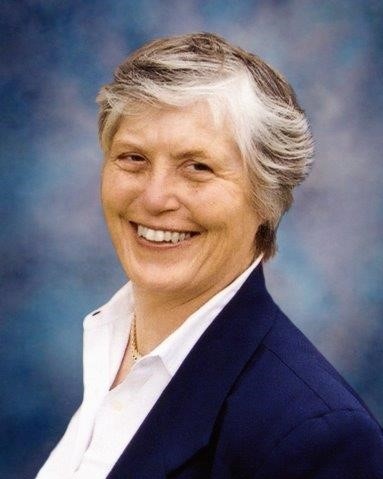
Susie Schreiber became Chair of the Waukegan Harbor Citizens Advisory Group (CAG) in 1998 after serving as a member representing Illinois Audubon since 1993. As Chair, she has networked together a comprehensive volunteer group of representatives from corporate, governmental, marine, educational, environmental and public entities plus concerned citizens to advance the massive cleanup of the Waukegan Harbor Area of Concern (AOC), once known as the site of the largest concentration of PCBs in the U.S. Her leadership in providing accurate and complete information to all stakeholders has resulted in a forum where issues can be thoroughly discussed so members can provide input and comment to USEPA and IEPA ultimately facilitating the cleanup of the Waukegan Harbor AOC to advance construction activities will be completed in 2016 by USEPA! She sought and found bi-partisan support from many representatives and congressional leaders over the 23 years she has devoted untold amounts of volunteer time to this significant international cleanup project. More than anything she is an educator – whether to enlist thoughtful stakeholder comment or educate the next generation of environmentalists and citizen scientists both here in Illinois and in Lake Baikal Russia, another CAG partner she has fostered. In addition she has worked tirelessly in the restoration of hundreds of acres of surrounding dunes, wetlands and ravines. Prior to working on the CAG cleanup, she worked as an Illinois Audubon representative on the initial phases of the Midewin National Tallgrass Prairie.
2015: Bill Compton, Caterpillar Inc.
Bill Compton had a distinguished career at Peoria-based Caterpillar’s Corporate Environmental Affairs, Corporate Auditing & Compliance Division, where he served from 1974 to 2007; he was recognized as leader from the corporate sector, working with the Illinois EPA and other stakeholders in developing groundwater protection and air pollution control programs. Before joining Caterpillar, Mr. Compton was Laboratory Director at the School of Public Health at the University of North Carolina at Chapel Hill. Prior to that he was Manager of the Air & Water Pollution Laboratory, Life & Material Science Center at Syracuse University Research Corporation. Bill has a BA in Chemistry from Millikin University in Decatur and a MS in Chemistry from Xavier University in Cincinnati. Because of his dedicated career in both public & private service, Bill has been the recipient of numerous awards & recognition, both on a state and national level. In 2007, to honor Bill’s environmental stewardship as a model for the Illinois business and corporate community, the Illinois Environmental Protection Agency announced creation of the Bill Compton Corporate Environmental Stewardship Award to recognize outstanding contributions to the environment by an individual or company, with the award’s namesake, Bill Compton, honored as the first recipient.
2015: Marcia Willhite, Illinois EPA
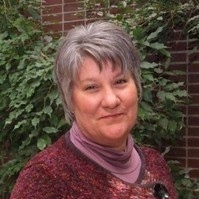
Marcia Willhite became Chief of the Bureau of Water, Illinois EPA in May 2001. In this capacity she oversees water pollution control, drinking water, groundwater, watershed management and state revolving fund programs for the State. Ms. Willhite is active in the Association of Clean Water Administrators (ACWA), serving as its national President in 2006-07. Prior to coming to Illinois, Ms. Willhite worked for 13 years in the air quality field, including program management at the state level in Texas and at the local level in Lincoln, Nebraska. Ms. Willhite participates in the Water Quality Executive Committee of the Upper Mississippi River Basin Association, and represents Illinois EPA on the Ohio River Valley Water Sanitation Commission. Ms. Willhite has a Bachelor of Science in Wildlife Biology from Eastern Kentucky University and Master of Science in Toxicology from the University of Kentucky.
2014: G. Tanner Girard, Ph.D., Illinois Pollution Control Board
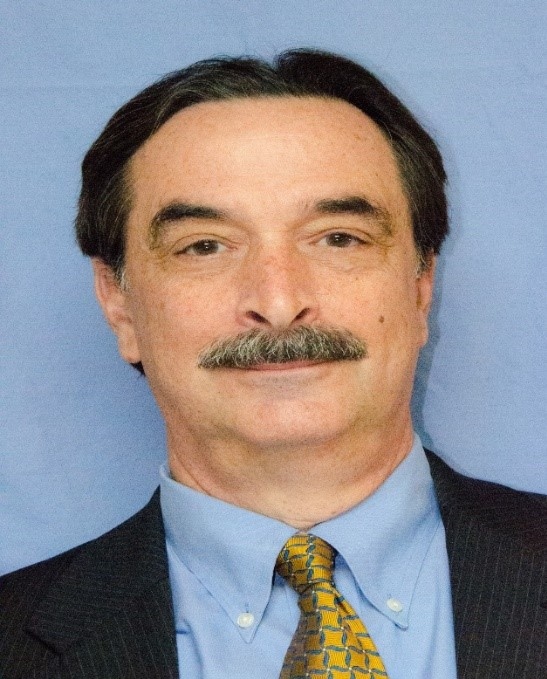
Tanner Girard has worked for environmental protection inside academia and the government since the 1970’s. He earned a B.S. in Biology from Principia College (Elsah, IL, 1974), a M.S. in Biological Sciences from the University of Central Florida (Orlando, 1976), and a Ph.D. in Science Education from Florida State University (Tallahassee, 1979).
From 1977 to 1992, he served in various positions at Principia College, including Associate Professor of Biology & Environmental Science, Unit Head (administrator) Mathematical & Natural Sciences and Department Chair Biology & Environmental Sciences. He taught a range of courses, including ecology, zoology, ornithology, environmental science, wildlife management, entomology and limnology. He also directed biology study programs to Mexico, Guatemala and Costa Rica, and was visiting professor at Universidad del Valle de Guatemala during Summer 1988. During his time in academia, he also authored 40+ articles in professional and public press, and performed field research on bald eagles in Illinois and Florida.
From 1992 to 2012, Tanner served in various capacities at the Illinois Pollution Control Board, including Board Member (1992-2011), Acting Chairman (2005-2011) and Executive Director (2011-2012). The Board writes environmental regulations for Illinois and acts as an environmental court to settle contested cases. He has authored or co-authored 600+ completed Board rulemakings and contested cases, and has been a frequent speaker on Board topics before professional and academic groups.
Dr. Girard also has a very distinguished record in other environmental leadership roles, has successfully fulfilled other government appointments, and generously provided leadership in the community service area.
2013: Lee Botts, Great Lakes Environmentalist
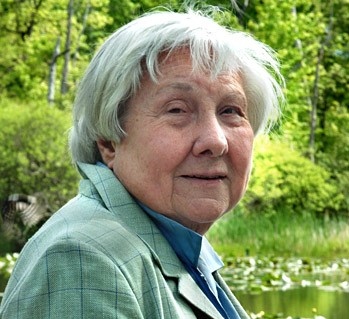
Lee Botts has worked for environmental protection inside and outside government since the 1960’s. In 1970, she founded the Lake Michigan Federation, now re-named the Alliance for the Great Lakes, the first regional environmental coalition for the Great Lakes. After serving as Assistant to the Administrator for Intergovernmental Affairs at the USEPA Region 5 office in Chicago, she was appointed chairman of the Great Lakes Basin Commission by President Jimmy Carter in 1978 until the agency was abolished by the Reagan administration in 1981.
As a research associate at Northwestern University from 1981 to 1986, she helped organize the bi-national citizens’ coalition Great Lakes United and was a consultant to the National Research Council for a study of toxic contamination of the Great Lakes by the National Academy of Science and the Royal Society of Canada.
Since retiring in 1990 to live in the Indiana dunes, she has been a consultant for the Indiana Department of Natural Resources, the Northwest Indiana Regional Planning Commission, the City of Chicago Department of Environment and other agencies, and served as adjunct faculty at Indiana University Northwest. She also helped organize a regional environmental coalition and participates actively in local and regional civic affairs.
In 2002, the 1,400-member national Clean Water Network named her as one of the 30 people who had made the most difference under the pioneering federal 1972 Clean Water Act.
2012: Robert (Bob) S. Elvert, ExxonMobil Corporation
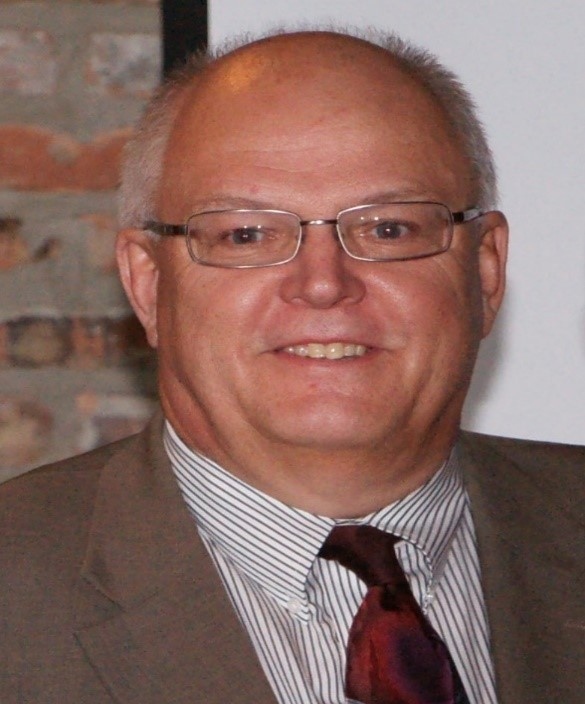
Bob Elvert is the Midwest Region State Issue Regulatory Advisor for ExxonMobil Oil Corporation. He is responsible for the identification, monitoring and advocacy of Water, Air and Land environmental issues as they pertain to ExxonMobil’s facility and assets in the 15 state region. His current issue focus is on the IEPA’s proposed Chicago Area Waterways Water Quality Standard, IEPA’s Nutrient Stakeholders group and IL and regional Ozone Air Quality Standards. In addition to state issues, he has been an industry representative on the Midwest Governor’s Association Low Carbon Fuel Policy and Advanced Transportation Fuels Stakeholders groups.
He started with Mobil Oil Corporation in 1978 and prior to entering the environmental field in 1991, Bob held plant supervisory positions in Illinois where he first dealt with environmental issues prior to moving on to various headquarters’ budget, supply, transportation and procurement supervisory positions. Although no technical environmental background, his thorough operational and headquarters experience was vital to being one of Mobil’s first environmental advocacy advisors.
In 1991, his first responsibilities were for federal water advocacy of stormwater, groundwater, anti-degradation and related SPCC requirements as they related to the service stations and terminals nationwide. In 1994, he became the Issues Advocate for all environmental issues for the 35 state Midwest and West Coast marketing and terminal facilities. Relocated to Illinois in 1996, Bob added the advocacy effort for the EM Joliet refinery and pipeline, as well as a 15 Midwest state region. Since then, he has advocated on behalf of various issues, including testimony in many Midwestern state-level environmental workgroups and rulemakings. In addition, he organized and led the 1997 Mobil/USCG PREP drill in Trenton, Michigan.
Since his participation in the initial 1999 IEPA Lower Des Plaines River Stakeholders group, he has had an active advocacy role in many of Illinois’ water issues, most importantly the current CAWS UAA and IPCB rulemaking process. In addition to regional impact, through his trade association activity, Bob seeks to inform statewide facilities as to the future impact the stringent CAWS mercury, chloride and thermal standards will have on them. He has also formed a local industry stakeholders group, in an attempt to address the issues with the IEPA. From a compliance perspective, he has worked with EM facilities on various site-specific NPDES and stormwater permit renewals.
Bob is currently in his second two-year term as Chairman of the Illinois Environmental Regulatory Group (IERG) and has been its Water Issues Workgroup Chair since 2006. He also continues to lead water issue advocacy for the Chemical Industry Council of Illinois (CICI) and Three River Manufacturing Association (TRMA).
2011: Howard Chinn, Illinois Attorney General’s Office
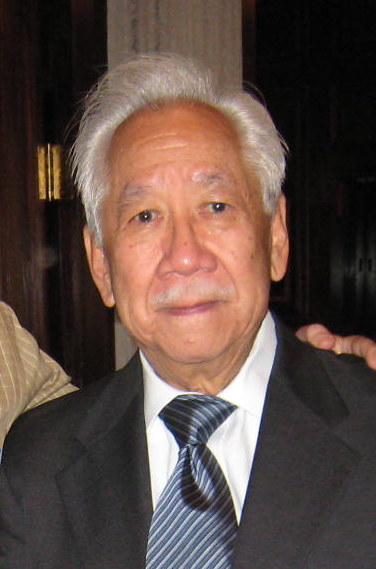
Howard Chinn, P.E., began his career with the Attorney General’s Office in 1972 during the administration of Attorney General William Scott. He was hired because of his expertise in process engineering management, and eventually served six Attorneys General: Scott, Fahner, Hartigan, Burris, Ryan and Madigan.
Mr. Chinn investigated countless incidents in which pollutants had been released into the environment, and consistently took a leading role on behalf of the State in developing technical resolutions. During his 38 years with the Attorney General’s Office, he worked on hundreds of cases.
Howard took his technical experience and expertise into the courtroom, testifying as an expert witness in support of several environmental enforcement actions brought by the Attorney General, and served on a number of environmental task forces and strike forces in his earlier years with the Office. He has always been deeply committed to the mission and purpose of the Attorney General’s Environmental Division, which is to ensure that every citizen or Illinois has a clean and healthful environment.
2010: Suzanne Malec-McKenna, Chicago Department of Environment
Suzanne Malec-McKenna serves as Commissioner of the Department of Environment for the City of Chicago. Suzanne was nominated by Mayor Daley for the position in August 2007, and has more than 20 years’ experience in environmental issues, including sustainable development and ecological preservation and restoration.
Commissioner Malec-McKenna has served for nearly 16 years in the Department of Environment, most recently as Deputy Commissioner of Natural Resources and Water Quality.
Suzanne has led key efforts for the Department, including Greencorps Chicago, the Chicago Center for Green Technology, the Calumet Initiative, the Chicago Conservation Corps and implementation of the Chicago Climate Action Plan. Suzanne has a B.S. from the University of Illinois, Urbana-Champaign, a M.S. in Managerial Communication from Northwestern University, and is currently seeking her Ph.D. from Northwestern in Communication Studies.
2009: Alan Jirik, Corn Products International; Past Chair of IWWSG
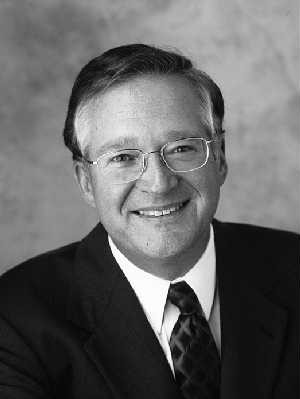
Alan is the Vice President of Regulatory Affairs for Corn Products International, Inc. His areas of expertise include policy and program development, government regulatory affairs, regulatory analysis & interpretation, and environmental affairs. His job responsibility includes environment, health, safety, and security. His efforts involve 31 plants in the Americas and Asia.
For the past two years, Alan was the Chairman of IERG, the environmental affiliate of the Illinois Chamber of Commerce, and he is active in state and national trade groups. He recently received an award from the Chemical Industries Council of Illinois recognizing his contributions and leadership. Through Corn Products, Mr. Jirik holds memberships with IERG, CICI, and the Chicagoland Chamber. He has been a member if the IWWSG since the early 1990’s, is a Past Chairman and served on the Steering Committee for eight years. He is a member of the Water Environment Federation (WEF) and the AWMA. Alan is a Certified Hazardous Materials Manager (CHMM).
Previous to his sixteen years of employment with Corn Products, he spent fifteen years working in the Chicago area office of Versar Inc., a major consulting firm specializing in environmental and regulatory matters. While with Versar, Mr. Jirik managed a wide variety of projects involving major Illinois companies.
He earned a BS in meteorology w/environmental emphasis, and holds a Masters degree in urban and environmental studies.
2008: Toby Frevert, Illinois EPA
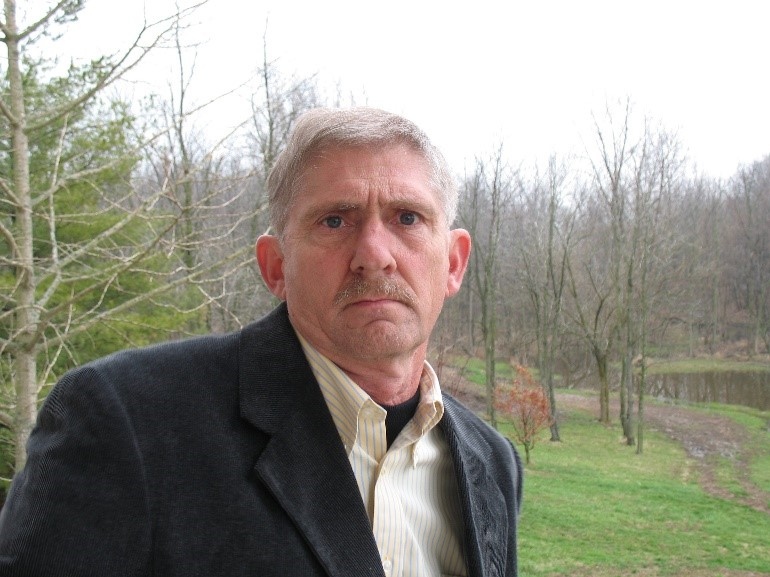
Mr. Toby Frevert, recently retired Manager of the Illinois EPA Division of Water Pollution Control (DWPC), has had a distinguished career at the Agency, serving in various positions for more than 30 years. In 1970, Toby began his career at the Agency as a Staff Engineer in the DWPC. His duties included field inspection of water pollution control facilities and investigation of pollution incidents, serving as a technical expert and witness in legal proceedings, and training junior staff. In 1985, he was promoted to Supervisor, Program Development Unit in the DWPC, where his responsibilities included technical and supervisory direction of state water quality management planning and standard development activities. He moved up to Manager, Planning Section, in the DWPC, a position that encompassed planning, organization, integration and direction of daily operation for a professional staff executing diverse statewide water quality programs. Toby then moved to Manager, Air Quality Planning Section, in the Division of Air Pollution Control, where he managed a staff responsible for the development of regulatory and statutory initiatives for the statewide air quality management program. In 1996, he became Great Lakes Coordinator for the Bureau of Water, where he coordinated all Lake Michigan activities of the Agency.
In 2001, Mr. Frevert became Manager of the DWPC. In that capacity, he managed a statewide water quality protection program with a staff of approximately 130 professional, technical and support personnel. He was responsible for developing and implementing programs, policies and procedures necessary to maintain state delegation of federal water pollution control programs mandated under the Clean Water Act. He also represented the IEPA before various overnment, private and nonprofit organizations, committees and task forces related to water quality program development and administration.
Toby earned his BSCE in Environmental Engineering from the University of Illinois in Urbana, and is a Registered Professional Engineer in the State of Illinois.
2007: Cecil Lue-Hing, D.Sc., MWRD
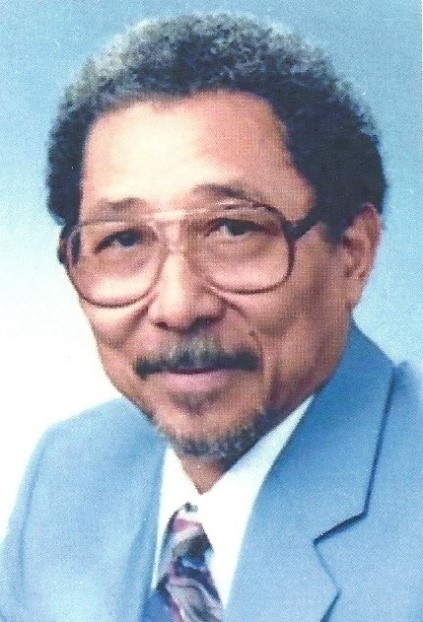
Dr. Cecil Lue-Hing has successfully combined a career as an environmental engineering consultant and applied researcher over a period of four decades spent in the private sector and government service. While he is internationally recognized as a residuals management expert, he prefers to be regarded as a generalist. His extensive practice affords him access to a wide range of experience in the design and operation of wastewater treatment systems, technical and regulatory aspects of municipal and industrial wastewater treatment and control, receiving waterway rehabilitation, and residuals (sludge) management, utilization in agricultural production and disposal.
After graduating from Washington University, he joined the consulting firm of Ryckman, Edgerly, Tomlinson and Associates which had a strong practice in industrial and municipal wastewater treatment and control. At a time when industrial waste treatment processes were not a shelf item and had to be customized and site specific, he directed or assisted in the development of treatment process design criteria for wastewaters from the synthetic rubber, ferrous and non-ferrous metals, organic chemicals, and pesticide industries.
His strong desire to return something back to the community plus a good eye for spotting a great professional opportunity, led him in 1971 to accept the appointment as Director of Research and Development for the Metropolitan Water Reclamation District of Greater Chicago, a large regional governmental agency, with abundant resources in skilled personnel and research potential. Shortly after arriving in Chicago, He had to deal head on with the passage of the Clean Water Act, and its impact on wastewater agencies and existing treatment technologies, which presented enormous product quality and regulatory compliance challenges for wastewater agencies, at the national, regional and local levels.
As Director of R & D, Dr. Lue-Hing was responsible for all wastewater, residuals (sludges), air emissions, odors, and waterways research. With the requisite skills and determination, he obtained support and funding to expand and upgrade the laboratories and research facilities, and recruited key technical personnel to take on the challenges of the Clean Water Act. The ensuing activities resulted in significant applied research contributions in wastewater treatment technology in the areas of nutrient control, anaerobic digestion, residuals (sludge) processing and utilization in agricultural production, characterization and control of air emissions both odors and VOCs, the rate of bioaerosols generation from the Activated Sludge wastewater treatment system, virus inactivation, industrial waste control, process design criteria for the Sidestream Elevated Pooled Aeration System for the Chicago River, and R&D direction for the Chicago Tunnel and Reservoir (Deep Tunnel) Plan.
Dr. Lue-Hing earned degrees from Marquette University (BSCE, 1961), Case Western Reserve University (MS-SanE, 1963) and Washington University in St. Louis (D.Sc. in Environmental and Sanitary Engineering, 1966), is a Registered Professional Engineer, is a Board-Certified Diplomate of the American Academy of Environmental Engineers and has received numerous professional awards/honors.
2006: Fred G. Krikau, Acme Steel Company / Interlake
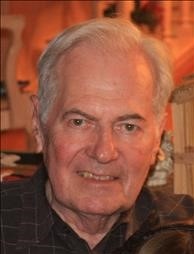
Fred G. Krikau, was employed by Acme/Interlake Steel for 23 years, where he was Director of Environmental Control and Vice President of the Interlake Technical Center. Mr. Krikau began his employment in 1955 in the Engineering Department at Acme Steel Company in Riverdale, IL. He designed & installed his first environmental control devices in 1958, a 350,000 cfm electrostatic precipitator on a new technology facility for making steel and a large industrial wastewater treatment system. In 1965, Acme Steel Company merged with Interlake Iron Corporation to form the Interlake Corporation. Fred, as Manager of Environmental Control, was assigned responsibility for environmental affairs at ten operating plant facilities located in eight states. In 1974, Mr. Krikau became Director of Environmental Control at Interlake. He had a staff of 30 professionals and a private fully equipped environmental laboratory. By this time, Interlake had 27 plant facilities located throughout the United States, Canada, Mexico, England, Belgium, Australia and Japan. Fred had environmental and industrial hygiene responsibilities for each of these plants. After retirement from Interlake in 1986, he started Fred G. Krikau & Associates (FGKA), a very successful environmental consulting business. In 1986, he expanded his company, added partners and renamed the company KPR, Inc. In 2005, Mr. Krikau left KPR, Inc. and reformed FGKA, which currently has its office in Dyer, IN.
Fred obtained a B.S. in Chemical Engineering from Purdue University in 1965, completed additional Environmental Control courses from the U.S. Public Service and Business courses from the University of Chicago, and became a Registered Professional Engineer. During his career, he was appointed to numerous Environmental / Blue Ribbon Committees, was a qualified expert witness, authored and presented many technical papers & articles, was an active member of many technical societies & associations, was awarded three environmental control patents, and testified before Congress on the preauthorization of the Clean Water Act. He also was an active participant in the development of many State environmental regulations from 1967 – 1998. He was a guest lecturer/teacher on environmental topics at the University of Illinois at Chicago, South Suburban Community College, the U.S. Public Health Service, and Illinois Institute of Technology.
2003: Ron Flemal, Illinois Pollution Control Board
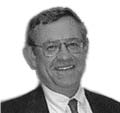
Ronald C. Flemal earned a BS from Northwestern University, and a Ph.D. in Geology from Princeton University. From 1967 to 1985 he served as a Professor of Geology at Northern Illinois University, during which time he authored over eighty articles dealing principally with environmental and natural science issues. Dr. Flemal served as a member of the Illinois State Bar Association’s Environmental Law Council, and was originally appointed by Governor James R. Thompson to the Illinois Pollution Control Board in May 1985, where he served until September 2002.
2002: James B. Park, Illinois EPA
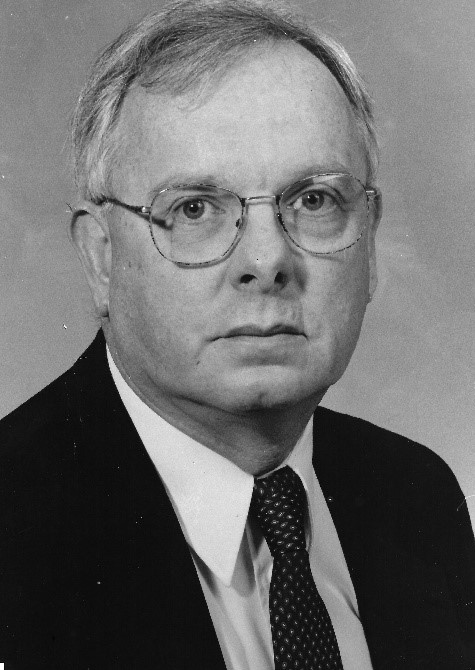
After a career at the Illinois EPA spanning more than 29 years, Jim Park retired as Chief of the IEPA Bureau of Water. A graduate of Southern Illinois University, Park received his BS degree in 1970 and MS degree in 1971. At that time, he joined a young IEPA as a permit review engineer in what was then the Division of Water Pollution Control. From 1974 to 1984, he served as Manager of the Division’s Technical Standards Section and in 1984 was named Manager of the Planning & Standards Section. He was Manager of the Division of Water Pollution Control from 1986 until 1991, when the Division of Water Pollution Control and the Division of Public Water Supplies were merged into the Bureau of Water, and he was named Bureau Chief.
During his years with the Agency, he served on the Board of Trustees of the Great Lakes Protection Fund, chaired the Water Quality Criteria Committee, served on the Technical Committee of the Ohio River Sanitation Commission, was on the Board of Directors of the Association of State and Interstate Water Pollution Control Administrations and served as a judge for the National Engineering Excellence Awards of the American Society of Consulting Engineers. He was a recipient of the Paul W. Eastman Environmental Statesman Award, presented by the State & Interstate Water Pollution Control Administrators.
2001: Richard Lanyon, MWRD
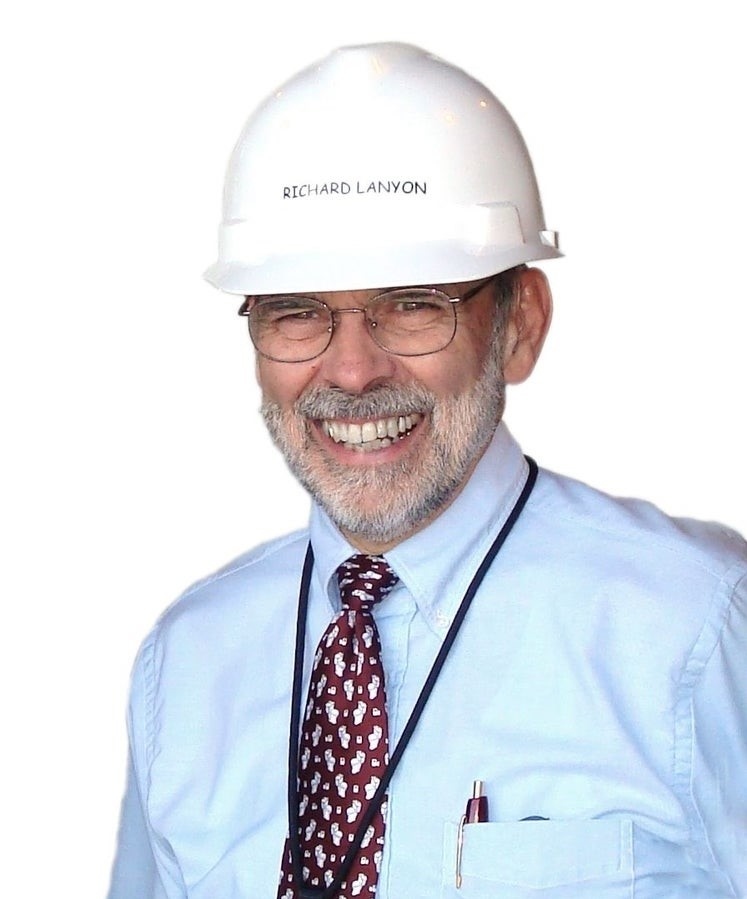
It was wintertime during the Korean Conflict when young Dick, born in 1937, was sitting at his desk doing Lane Technical High School homework. He looked out the window of his parent’s home in Chicago’s Ravenwood Manor neighborhood. There, beyond the Lawrence Avenue bridge over the North Branch, was the illuminated sign identifying the North Branch Pumping Station. His future suddenly appeared before him, he would attend the University of Illinois at Urbana-Champaign, obtain BS and MS degrees in Civil Engineering, use his knowledge, and Go Lane Go spirit to fight those who pollute the waterways in and around Chicago. At the Harza Engineering Company, 1961 and 1962, he worked on international hydropower projects and the expert testimony project defending the Metropolitan Sanitary District’s right to divert water from Lake Michigan. With no desire to travel to third-world countries, Dick decided to move his career to the Metropolitan Sanitary District of Greater Chicago. He was involved in waterway operations, 1963 to 1969, flood control planning and design, 1970 to 1973, and industrial waste control, 1974 to date. Through his hard work and dedication to public service, he was appointed to the position of Assistant Director of Research and Development in 1975. Dick braved the arrows and insults of polluters and appeared annually at the November dinner meeting of the IWWSG to present the latest efforts of the MSDGC to thwart the evil doings of industrial no-good-doers and user charge cheaters. [Editor note: Yes, Dick did author this paragraph!!]
Dick retired from his position as Executive Director of the Metropolitan Water Reclamation District of Greater Chicago (MWRD) at the close of 2010, a position that he held for 4 years. As Executive Director, he directed the day-to-day operations of the MWRD, which included 2,100 employees serving five million people in Cook County and the industrial waste load equivalent of another four million people. The MWRD provides wastewater and stormwater management and other related services to protect the environment. Dick’s career at the MWRD spanned nearly 48 years.
In 2012, Dick published Building the Canal to Save Chicago, a historical documentary of the first project of the MWRD that enabled the reversal of flow in the Chicago River to protect Lake Michigan. In May 2016 his second book, Draining Chicago: The Early Years and the North Area, was published. West by Southwest to Stickney, Draining the Central Area of Chicago and Exorcising Clout was published in April 2018. Calumet: First and Forever: Draining the South Area of Chicago and Territorial Expansion was published in September 2020. All four completely describe the engineered drainage system in metropolitan Chicago and history of the engineered MWRD infrastructure.
Dick has received numerous awards including: American Society of Civil Engineer’s National Government Civil Engineer of the Year Award in 1999; Distinguished Alumnus of the Department of Civil and Environmental Engineering at the University of Illinois at Urbana-Champaign (UIUC) in 2003; Edward J. Cleary Award from the American Academy of Environmental Engineers and Scientists in 2011; and Distinguished Service Award from the National Association of Clean Water Agencies (NACWA) in 2011. He is also a past President of the Illinois Section of the American Society of Civil Engineers and holds Bachelors and Masters of Civil Engineering degrees from the UIUC. In 2013, Dick was inducted into the NACWA Hall of Fame.
2000: James T. Harrington, Environmental Attorney; Past Chair of IWWSG
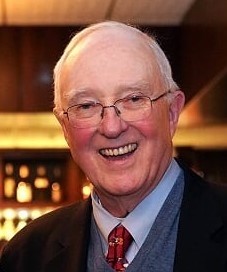
James T. Harrington has devoted most of his career to environmental law and litigation. He has represented steel, oil, chemical and other manufacturing companies in state and federal enforcement litigation at the trial and appellate levels. He has extensive background in federal, state and local regulatory development and judicial review, with emphasis on air pollution and state implementation plans, federal effluent guidelines and pretreatment standards, and state regulatory development. A major portion of his time has been spent counseling and representing clients on air, water, solid waste and hazardous waste regulations & permitting.
Mr. Harrington’s professional work experience includes: Vice-President & General Counsel of Green SEED Energy; Partner, McGuireWoods LLP, Chicago, Illinois (Retired); Partner, Ross & Hardies, Chicago, Illinois; Partner, Rooks, Pitts and Poust, Chicago, Illinois; and Law Clerk, U.S. District Court, Northern District of Indiana. He has been a member of, and served in various leadership roles, in many professional organizations, including the American Bar Association, Chicago Bar Association, Illinois Bar Association, Indiana Bar Association, Chicagoland Chamber of Commerce, Chemical Industry Council of Illinois, Illinois Manufacturers' Association, Water Environment Federation, Illinois State Chamber of Commerce, Environmental Law Institute, The Lawyers Club of Chicago, Executive Club, Union League Club of Chicago, Chicago Industrial Water, Waste & Sewage Group (Past Chairman, 1990-1993), Mid-America Legal Foundation of Chicago, Illinois Safety Council, Illinois Institute of Technology (Adjunct Professor, Chair of Advisory Board, & Chair of Master of Environmental Management Program, Stuart School of Business), and Lake Michigan States Section of the Air & Waste Management Association.
Jim is a graduate of the University of Notre Dame Law School, Notre Dame, Indiana, J.D., 1967, where he was on the Board of Editors, Notre Dame Lawyer (Law Review), and the University of Notre Dame, Notre Dame, Indiana, B.A., 1964 Honors.
2000: Thomas McSwiggin, Illinois EPA
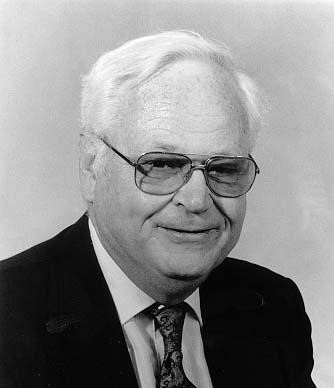
Thomas G. McSwiggin served as Manager of the Permit Section in the Illinois EPA Division of Water Pollution Control. He has been recognized for his outstanding contributions in the field of waste collection, treatment and purification, providing improvement to the environment. Tom earned Bachelor of Science degree in Civil Engineering and a Master of Science degree in Sanitary Engineering from the University of Iowa. He is a registered professional engineer both in Illinois and Iowa, and holds membership in the National Society of Professional Engineers, the American Society of Civil Engineers, the Water Environment Federation, and the American Water Works Association.
A veteran state employee, McSwiggin completed 35 years of service to the state in the water pollution control field, working first for the state Department of Public Health, then joining the Illinois EPA when it was created in 1970.